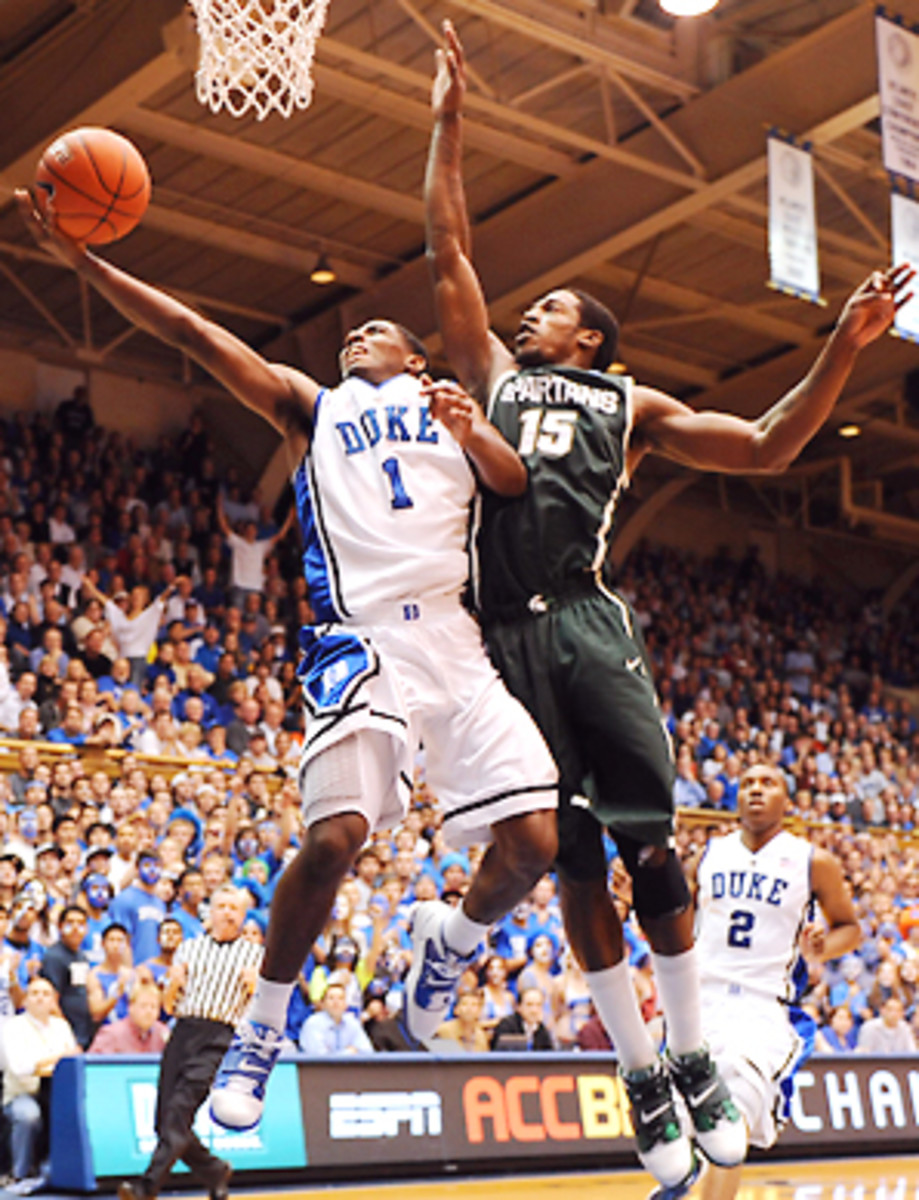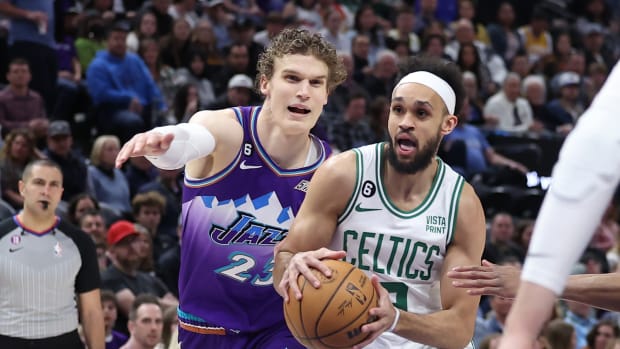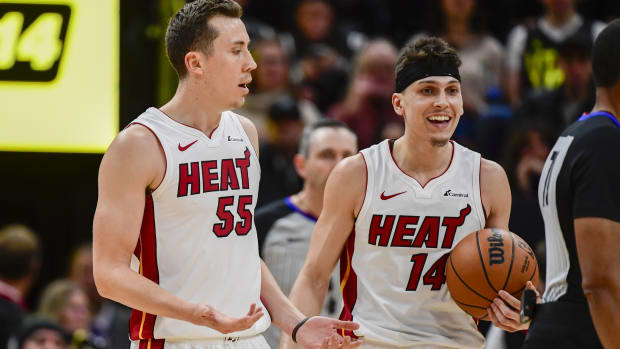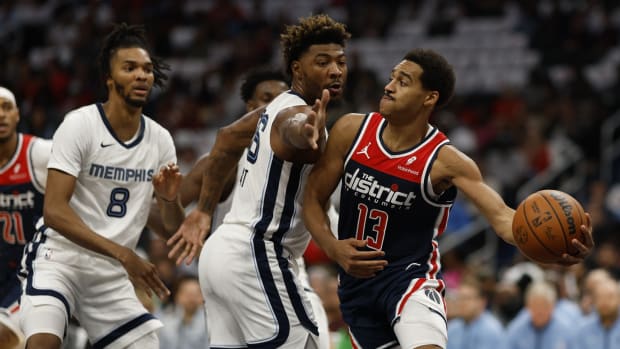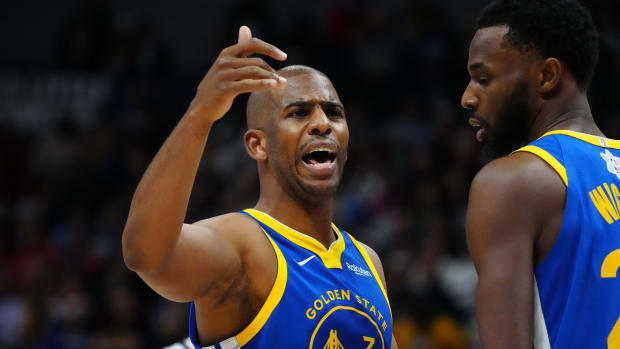Duke's Irving headlines dynamic freshmen drawing NBA attention
With the advent of the age limit for the 2006 NBA draft, commissioner David Stern got his wish: taking professional scouts out of high school gyms and ensuring America's top prospects play at least one year of college basketball.
As evidenced by the table below, 34 college freshmen have been drafted since 2007, 19 of whom were lottery picks, making this the most pressing class of players for NBA teams to evaluate, especially considering how little they actually know of them going into each season.
Here we present the freshmen who have been delivering the goods early this season, making them prime candidates to be highly coveted one-and-dones this June.
The last thing the defending national champions needed (at least from the rest of the ACC's perspective) was to add arguably the most talented point guard in America, but that's exactly what Duke did with Irving.
Coach Mike Krzyzewski has put the keys to the Blue Devils' offense in Irving's hands, giving him the unique opportunity of managing a group of NBA-caliber players while learning from his mistakes on the fly. Through eight games, Irving has averaged 17.4 points, 5.1 assists and 3.8 rebounds per game.
Irving has had a number of impressive performances thus far, such as his 31-point outing against Michigan State. With North Carolina's Harrison Barnes struggling badly, Irving is making a strong case for consideration as the No. 1 overall pick in the 2011 draft.
Showing prototypical physical tools for a point guard, as well as advanced shot-creating ability, a polished perimeter jumper and a superb basketball IQ, Irving has been Duke's most dominant player.
He'll need to continue to improve his ability to make good decisions in the half-court offense, something that will come with time and experience. Irving can still do a better job taking care of the ball and playing defense. We're really nitpicking at this point, though, as there has been very little to criticize about Irving's game in the first six weeks of the season.
NBA scouts take notice when 18-year-olds make the transition from high school to college look effortless. That's what Jared Sullinger has done. The 6-foot-9 big man has been carving up college frontcourts all season, announcing his presence to the nation with a monster 26-point, 10-rebound outing in a nationally televised rout of Florida. He hasn't slowed down since, averaging 14.5 points and 9.3 rebounds per game.
What makes Sullinger attractive to NBA teams is the fact that he's one of the few college players who can operate effectively with his back to the basket, possessing both the strength to establish deep post position and the desire to assert his will inside. Sullinger's reliable hands, soft touch and advanced footwork are coveted commodities in today's NBA. Very fundamentally sound, Sullinger is intelligent enough to pass out of double teams and knocks down his free throws at a solid rate. He's even shown the ability to step outside and hit a 17-foot jumper. Add in the fact that he's an outstanding rebounder on both ends and we're talking about a pretty complete player for an 18-year-old.
The biggest questions about Sullinger are on defense. Clearly undersized for the center position he's best suited for, Sullinger will need to show he's able to overcome his lack of quickness and guard better athletes at the power forward spot. Also not overly explosive around the basket, Sullinger must continue to show he can score in the paint against NBA players. And while he's made big strides with his body, he still has work to do to ease the concerns about his weight being a long-term issue.
While the 2010 draft was brimming with talented frontcourt players -- seven power forwards or centers were picked in the lottery alone -- this year's crop doesn't look quite as promising. Sullinger will have a chance to be picked very high based on what we've seen so far.
Rated the 10th best player in the 2010 high school class according to the RSCI, not many people expected Jones to be averaging close to 20 points and 10 rebounds per game seven games into the season. He's elevated his draft stock considerably to the point that some notable evaluators now consider him a potential top-five pick.
Jones is one of the most physically gifted prospects in the nation, standing 6-8 with a chiseled frame and an outstanding blend of mobility and explosiveness. Spending most of his time at power forward in John Calipari's dribble-drive motion offense, he's a mismatch capable of creating his own shot from the perimeter and showing range out to the three-point line. Jones likes to mix it up inside the paint as well, showing the ability to score with his back to the basket and establishing himself as an absolute force on the boards.
With his length and athleticism, he projects as the type of player who can see time at either forward position in the NBA, which makes him attractive to teams that like to get out in the open floor. He'll need to continue to improve his fundamentals on defense and show that his hot early shooting from outside wasn't a fluke, but it looks like Jones is here to stay when discussing the best prospects in this class.
Perry Jones, 6-11 PF, Baylor: With his prototypical physical profile and versatile skill set, Jones is the type of prospect NBA scouts dream about. He'll get some looks starting with the No. 1 overall pick based solely on his upside, but the Baylor freshman is still a work in progress in terms of improving his polish and playing consistently from game to game. Jones has been solid early on, but more data is needed in order to draw better long-term conclusions.
Tobias Harris, 6-8 SF/PF, Tennessee: Bruce Pearl has Harris operating as a sort of point forward in his offense, often asking the New York native to bring the ball up the floor and get Tennessee into its offense. He's been shooting the ball well early on and getting to the free-throw line at a superb rate. But Harris appears to be somewhat stuck between the 3 and 4 positions and probably isn't quite as naturally athletic as some of the other freshmen in this class.
Brandon Knight, 6-3 PG, Kentucky: Knight is scoring well at more than 17 points per game, but is averaging more turnovers than assists, which has been glaring in both of Kentucky's losses so far. Knight is clearly an outstanding shooter and all-around point-producer, but his shot selection and decision-making have been very poor at times.






























